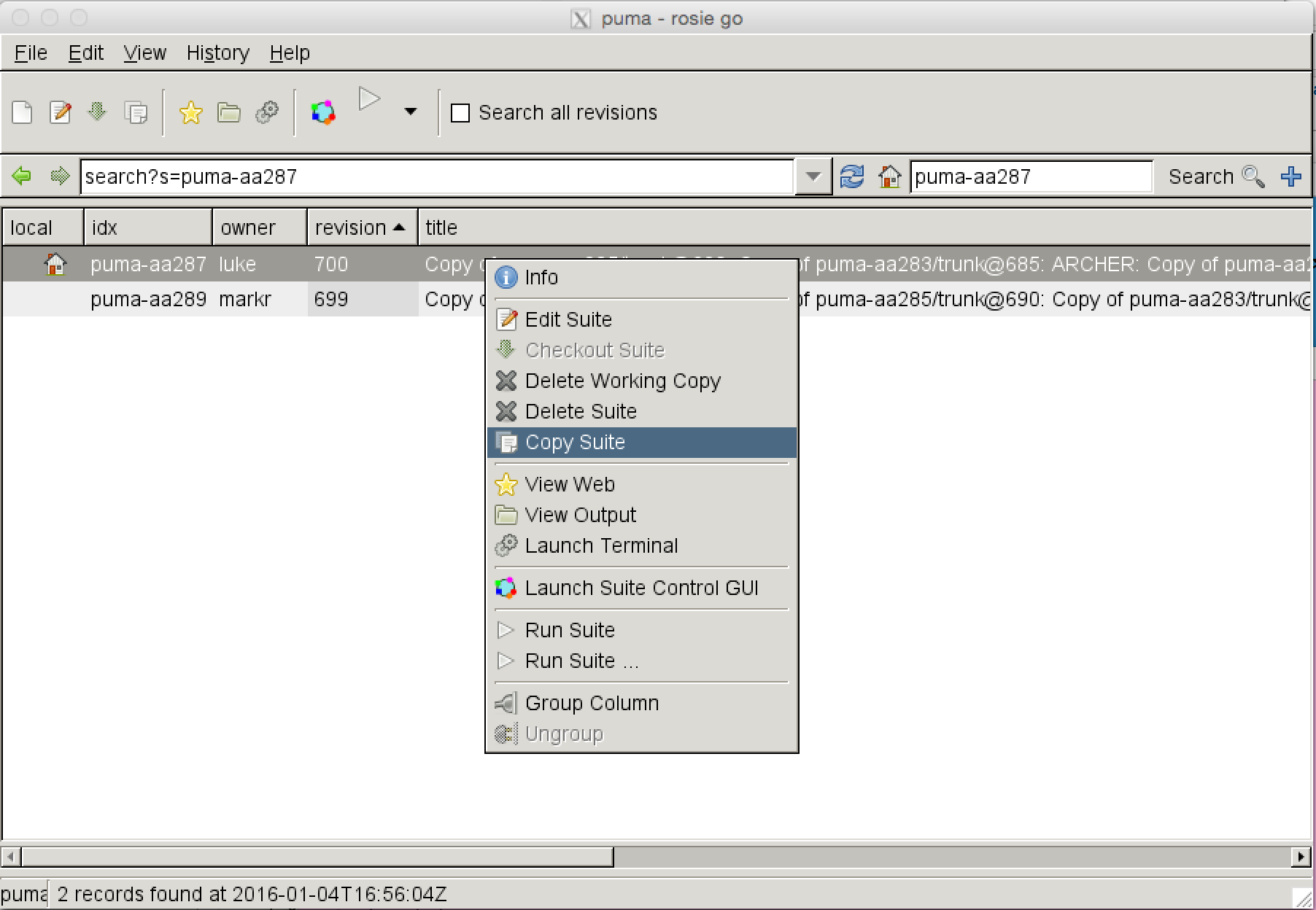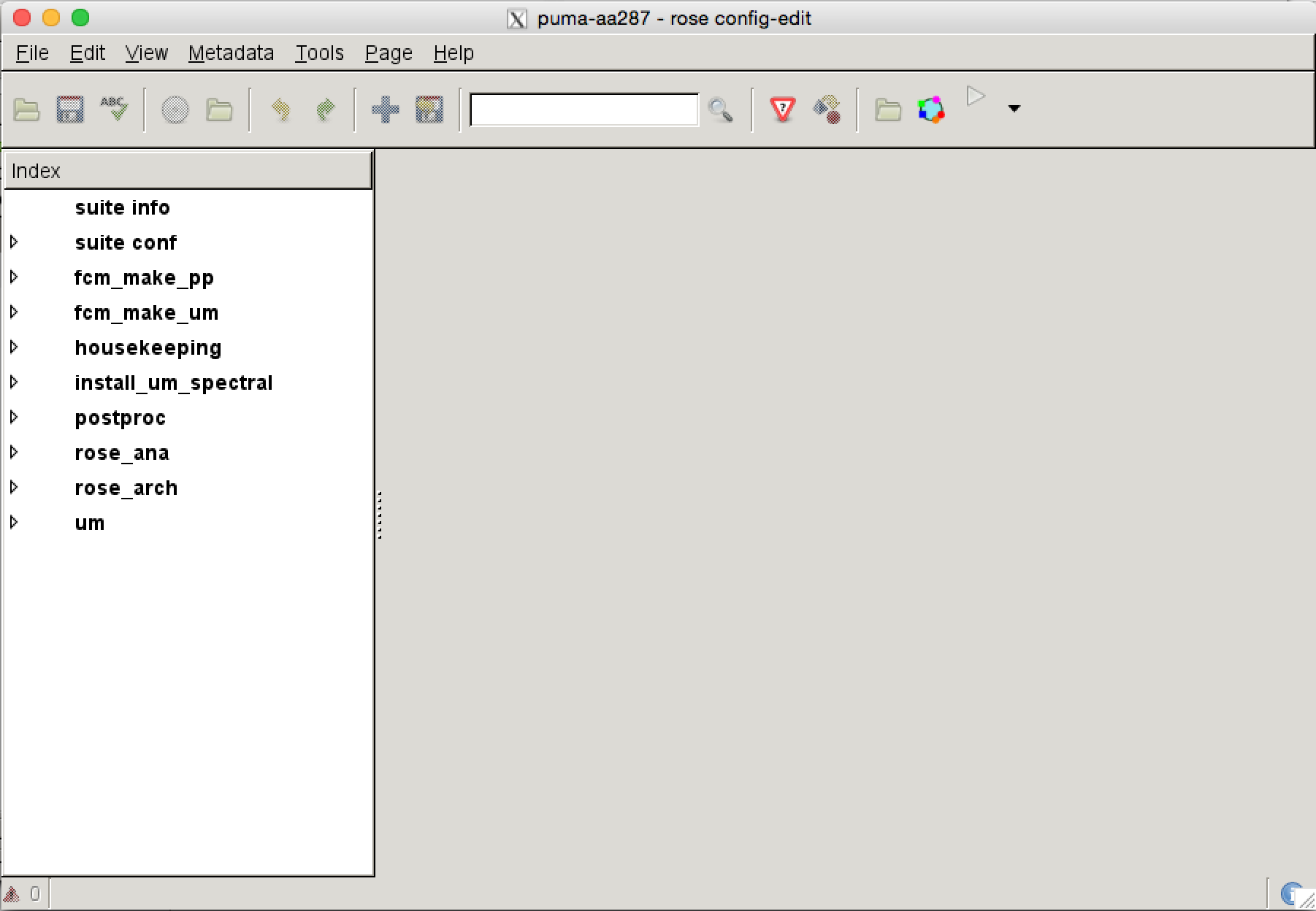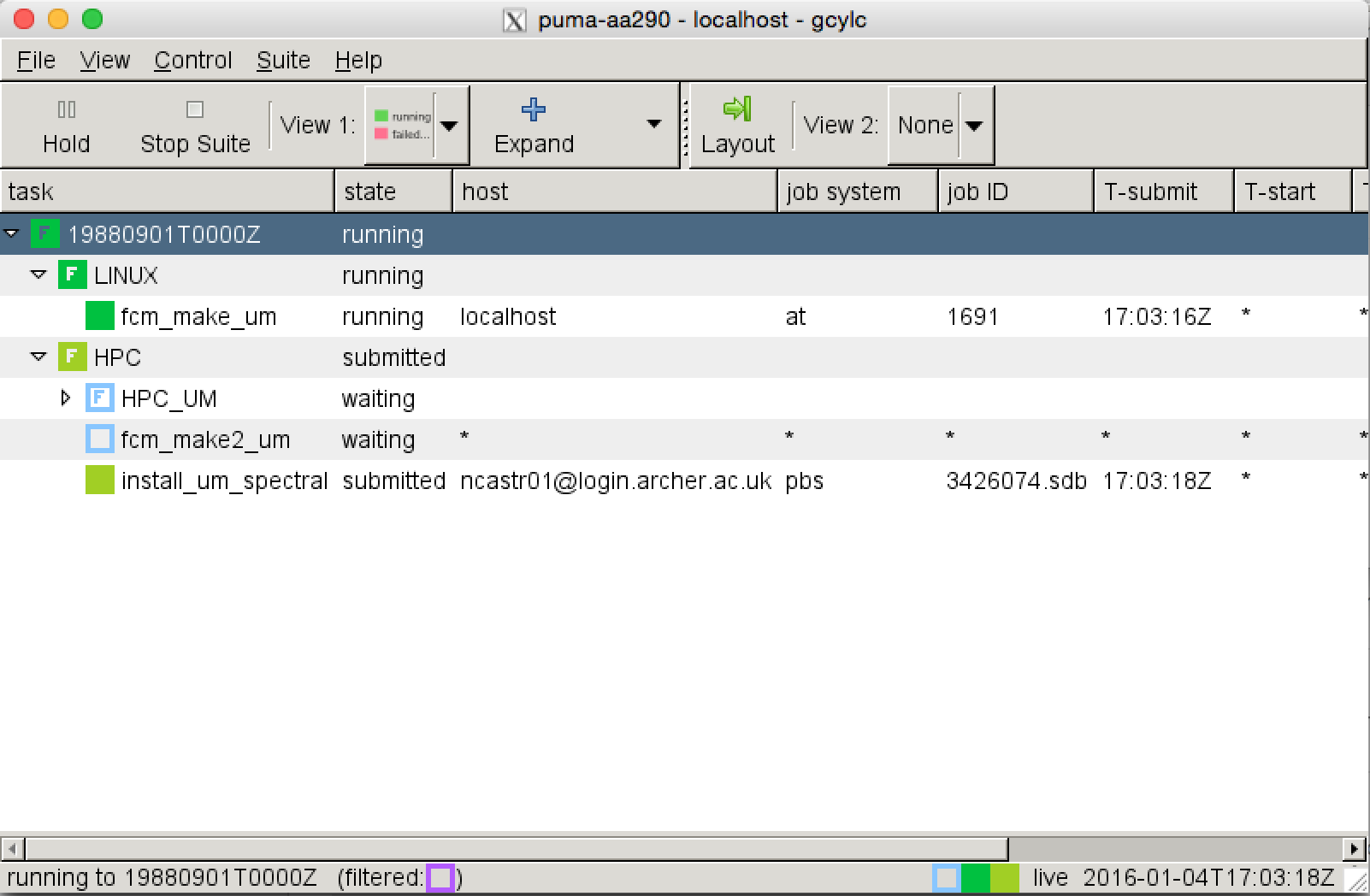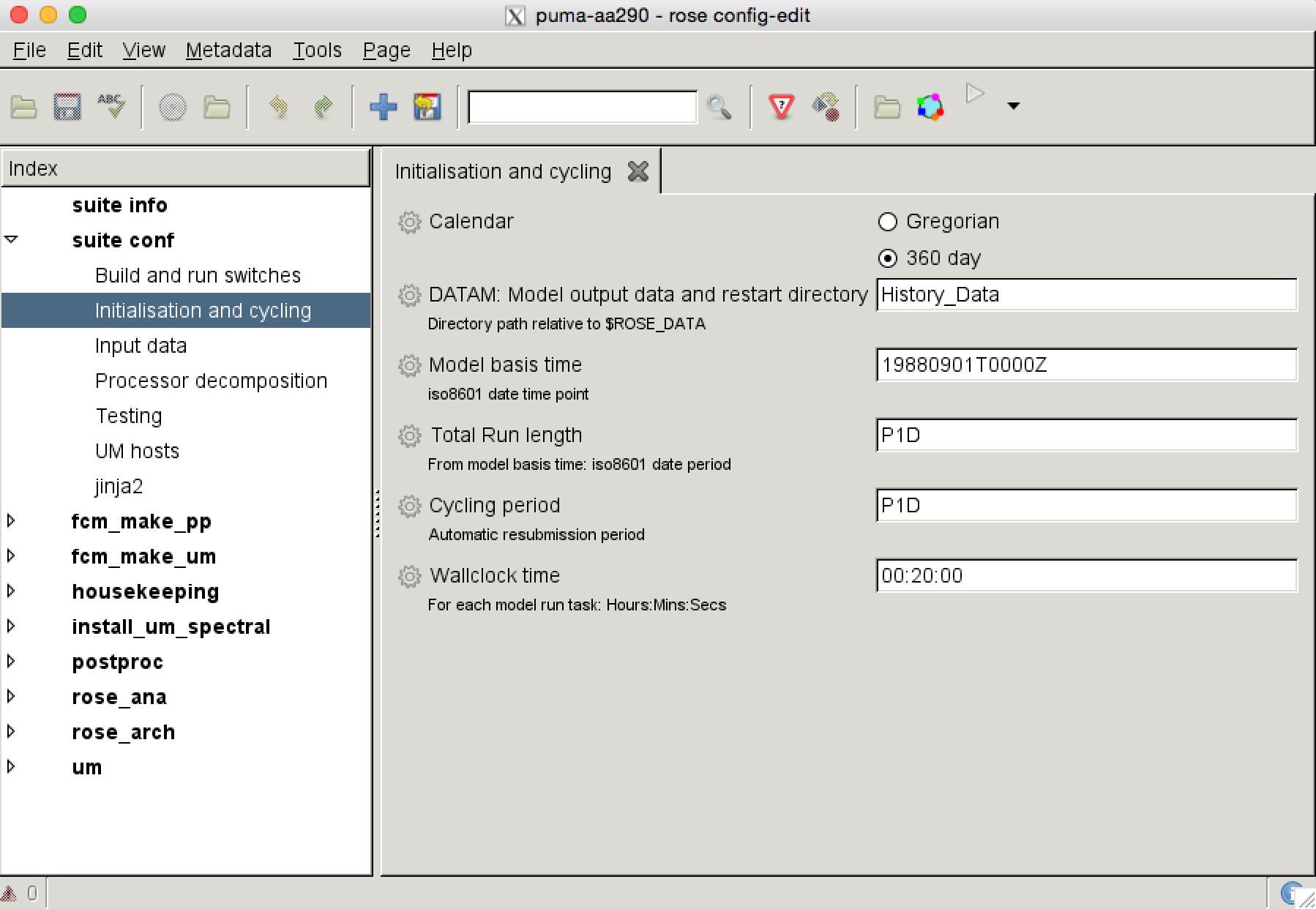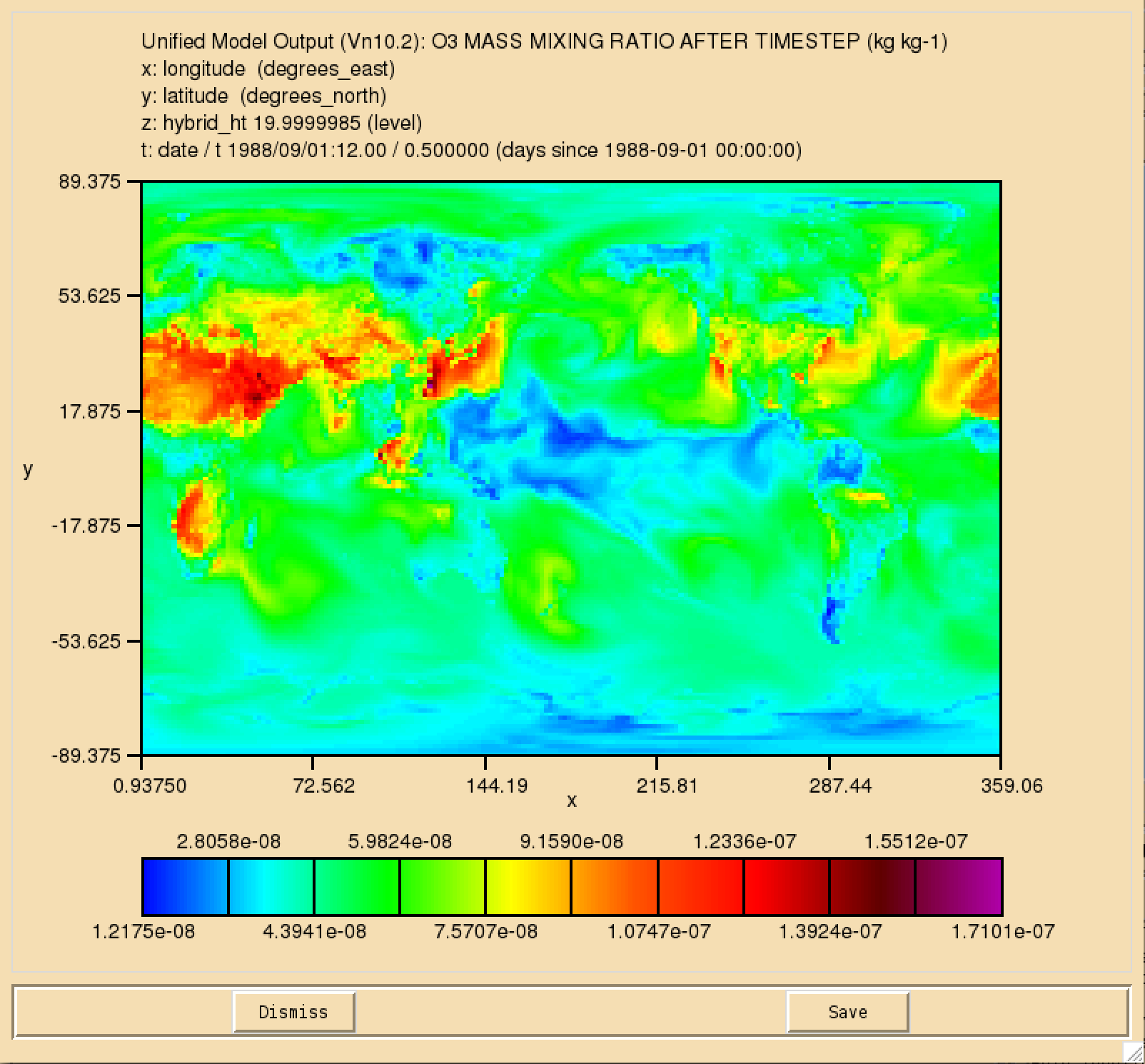Difference between revisions of "UKCA Chemistry and Aerosol Tutorial Rose Example"
| Line 35: | Line 35: | ||
! Answer |
! Answer |
||
|- |
|- |
||
| − | | 1 day. This is defined by the '''P1D''' value ("plus one day"). Similarly, P1M would be a 1-month run, and P10Y4M would be a 10-year, 4 month run. |
+ | | 1 day. This is defined by the '''P1D''' value ("plus one day"). Similarly, P1M would be a 1-month run, and P10Y4M would be a 10-year, 4 month run etc. |
|} |
|} |
||
Latest revision as of 16:13, 6 January 2016
Back to UKCA Chemistry and Aerosol Tutorials
This tutorial will give you a brief example of a Rose job at vn10.2.
Running Rose
In PUMA, do
rosie go --prefix=puma
and in the search box search for puma-aa287.
You can then right-click and then copy this job. Click Forward and OK to do this.
Double-click on this job and you should then have the Rose GUI open-up.
Rose is organised rather differently from the UMUI, but it is searchable. Search for ncastr and then put your NCAS training account in the correct box, then click the save icon.
Now you will be able to run the job - click the Play icon (the right-facing triangle). The Cylc GUI will appear and show the progress of your job. You can click to expand all the steps.
Questions
- 1) What is the run length of this run?
| Answer |
|---|
| 1 day. This is defined by the P1D value ("plus one day"). Similarly, P1M would be a 1-month run, and P10Y4M would be a 10-year, 4 month run etc. |
- 2) What is the start date of this run?
Hint: Go to the suite conf: Initialisation and cycling panel. What do you see?
| Answer |
|---|
| Midnight GMT on the 1st September 1988 (19880901T0000Z). |
- 3) Find the UKCA panel, and compare this to the UMUI UKCA panel. Are there any differences? What are they?
- 4) Where is the data held on ARCHER?
| Answer |
|---|
| /work/n02/n02/$USER/cylc-run/puma-xxYYY/share/data/History_Data |
- 5) Can you find the ozone field that has been output?
| Answer |
|---|
| It is at the end of the xxYYYa.pa19880901 file. |
- 6) Compare this field to the ozone field from your tutorial job. What differences stand out?
| Answer |
|---|
| Apart from the fact that the values are different, the grid is also different. This is because the vn8.4 job is New Dynamics (192x145 gridpoints: -90.0 to 90.0 in steps of 1.25, and 0 to 358.125 in steps of 1.875), whereas the vn10.2 suite is based in GA6.0+ and uses ENDGAME (192x144 gridpoints: -89.375 to 89.375 in steps of 1.25, and 0.9375 to 359.0625 in steps of 1.875). |
